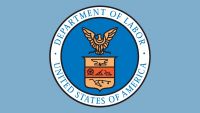Protection of Private Property Rights is Fundamental
By John Cornyn
Rarely has a decision of the nation's highest court generated as much attention from Congress - or so quickly - as the Supreme Court's 5-4 decision in Kelo v. City of New London, issued on June 23.
Why has this case received so much attention? Simply because the American people understand that the protection of homes, churches, small businesses and other private property against government seizure and other unreasonable government interference was a fundamental principle and core commitment of our nation's founders. As Thomas Jefferson wrote in 1816, the protection of such rights is "the first principle of association, 'the guarantee to every one of a free exercise of his industry, and the fruits acquired by it.'"
In the Kelo ruling, the Court acknowledged that "it has long been accepted that the sovereign may not take the property of A for the sole purpose of transferring it to another private party B," and that the power of eminent domain may be used only "for public use." Yet the Court nevertheless held that government may seize the home, small business or other private property of one owner and transfer it to another private owner, simply by concluding that this transfer would benefit the community through increased economic development.
The Court's decision is alarming. As Justice O'Connor accurately noted in her dissenting opinion, joined by the Chief Justice and Justices Scalia and Thomas, the Court has "effectively ... delete[d] the words 'for public use' from the Takings Clause of the Fifth Amendment" and thereby "refus[ed] to enforce properly the Federal Constitution."
Under Kelo, Justice O'Connor warns, "Nothing is to prevent the State from replacing any Motel 6 with a Ritz-Carlton, any home with a shopping mall, or any farm with a factory. ... Any property may now be taken for the benefit of another private party," and "the fallout from this decision will not be random."
That is why I introduced S.1313, the Protection of Homes, Small Businesses and Private Property Act of 2005. The legislation would declare Congress's view that the power of eminent domain should not be exercised for purposes of "economic development" and that the power to seize property should be reserved only for true public uses. Most importantly, eminent domain should not be used to shift property from one private party to another. The bill would apply this standard to two areas that are clearly within Congress's authority to regulate: 1) all exercises of eminent domain power by the federal government, and 2) exercises of eminent domain power by state and local government through the use of federal funds.
The Kelo decision was a disappointment, but is also a stark reminder of the importance of the judicial confirmation process. Recall that throughout the debate over the nomination of Justice Janice Rogers Brown to the U.S. Court of Appeals for the D.C. Circuit, opponents derided her personal passion for the protection of private property rights. But the reaction to the Kelo decision demonstrates the need for lawmakers and judges alike to respect and enhance laws protecting property rights.
It is clear that momentum continues to grow in Congress to respond. Since I introduced S.1313, I have been joined by a bipartisan group of 25 co-sponsors and several companion bills have been filed in the House of Representatives. It is appropriate for Congress to take action, consistent with its limited powers under the Constitution, to protect homes, churches, small businesses and all private property against unreasonable government exercise of the power of eminent domain.
There are now several proposals on the table to review, and I hope that Congress will take a serious look at them and move forward with debate on this important issue.
About the Author
Senator Cornyn currently chairs the Judiciary Committee's subcommittee on Immigration, Border Security and Citizenship, and in the last Congress he was Chairman of the Constitution, Civil Rights and Property Rights subcommittee. He served previously as Texas Supreme Court Justice, Texas Attorney General and Bexar County District Judge.


















